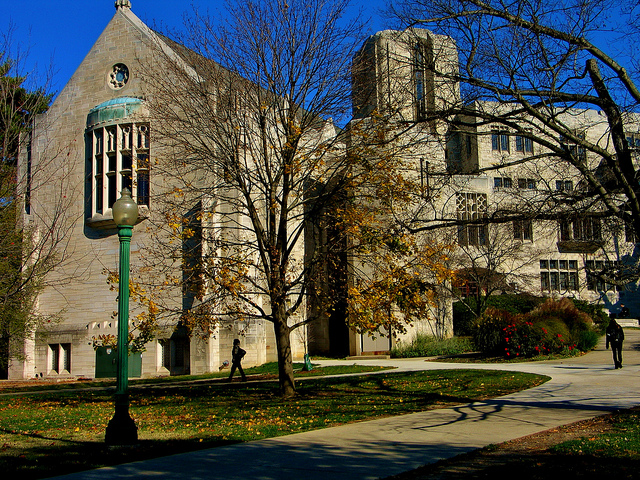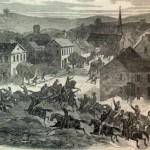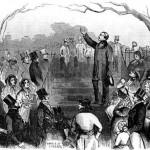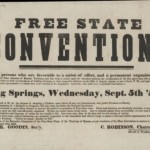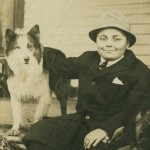Woodburn Hall on Indiana University's Bloomington campus is named for sometime history chair James Albert Woodburn.
James Albert Woodburn (1856-1943) spent a distinguished career as a historian within the ivied walls of Indiana University. Woodburn, a Bloomington native, had come from a line of teachers. His childhood was spent in the shadow of the Civil War; by the time he enrolled at IU as a freshman in 1872, the country was undergoing the tumult of Reconstruction.
Woodburn, like his father and uncle before him, joined one of the collegiate literary and debate clubs that were available to aspiring young gentlemen who wished to learn about current events and hone their public speaking skills, as well as enjoy the regular company of their fellow students. Woodburn became a member of the Athenian Society, and within their meetings he spoke on current topics thatreflected his growing political interests. Perhaps just as interesting as the speeches Woodburn gave are the texts he wrote but never delivered.
One such speech, titled “Decoration Day” and intended to be read during his junior year at the university (in 1875), was a particularly pointed message about the politics of the war and Reconstruction, probably never given because Woodburn realized how volatile the reaction to his words might be.
For three generations, James Albert’s paternal ancestors had opposed slavery. His grandfather had been forced to leave North Carolina because of his outspoken opposition to the institution. James Albert stood proudly in the family tradition, and as he looked at the nation in the 1870s, he saw both North and South retreating from the issue of slavery to pursue national unity at all costs.
Woodburn structured his speech around the Southern custom of Decoration Day, when on May 30, women went to the cemeteries to place flowers on the graves of fallen Confederate soldiers. Woodburn commended the practice of honoring Southern soldiers for their “valor and high courage”; he condemned both North and South, however, for extending to the South “honor with forgiveness.”
“If this Union,” the young man wrote, “is to be formed only by our people equally honoring those who fought for and those who fought against our country . . . then I can earnestly say let the day never come.” Did the people of the United States, he asked, honor Benedict Arnold when they spoke of heroes of the Revolution? Why, then, he added rhetorically, were Northerners and Southerners disposed to honor Robert E. Lee and Jefferson Davis, indeed all Confederates, when “the great fact remains that they fought on the wrong side, against their country, against liberty and humanity.”
Woodburn kept a meticulous archive of family papers, including his own. On the first page of his handwritten manuscript of “Decoration Day,” many years later as a much older and perhaps more temperate man, he added a note at the top “I was rather irreconcilable” and wrote at the bottom “Athenian Hall. This never was read.”
A Moment of Indiana History is a production of WFIU Public Radio in partnership with the Indiana Public Broadcasting Stations. Research support comes from Indiana Magazine of History published by the Indiana University Department of History.
Source: “Younger and More Irreconcilable: James Albert Woodburn’s Undergraduate Orations at Indiana University, 1875-1876,” IMH 108, June 2012










